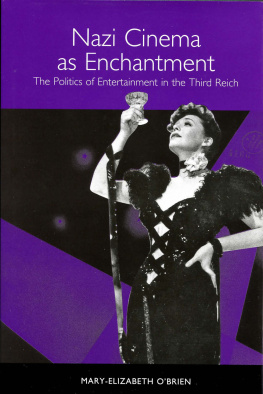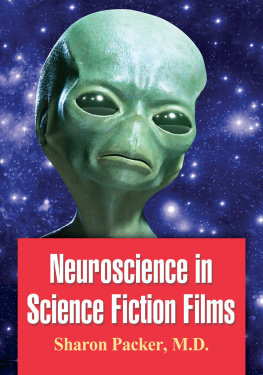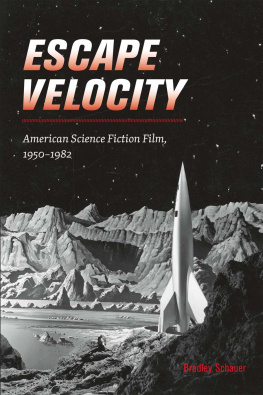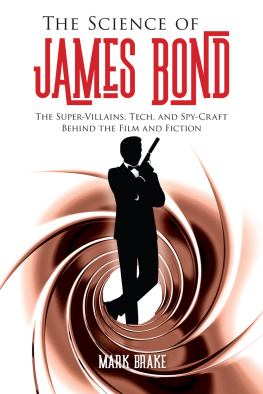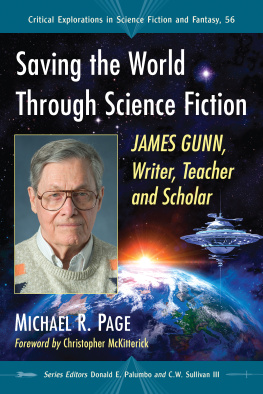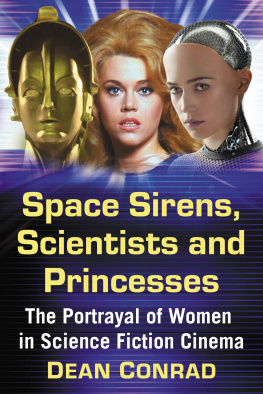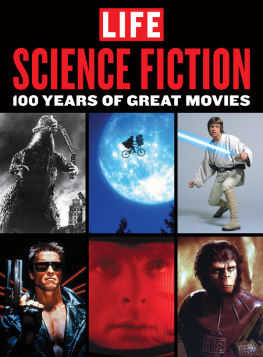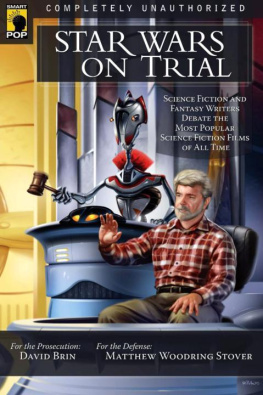James Chapman is Professor of Film Studies at the University of Leicester, UK. His previous books include The British at War: Cinema, State and Propaganda, 19391945 (1998), Licence to Thrill: A Cultural History of the James Bond Films (2nd edition 2007) and Inside the Tardis: The Worlds of Doctor Who A Cultural History (2006, new edition 2013), all from I.B.Tauris. He is the editor of the Historical Journal of Film, Radio and Television.
Nicholas J. Cull is Professor of Public Diplomacy in the Annenberg School for Communication and Journalism at the University of Southern California in Los Angeles. His previous books include Selling War: British Propaganda and American Neutrality in the Second World War (1995), The Cold War and the United States Information Agency: American Propaganda and Public Diplomacy, 19451989 (2008), The Decline and Fall of the United States Information Agency: American public diplomacy, 19892001 (2012), and (with James Chapman), Projecting Empire: Imperialism and Popular Cinema (I.B.Tauris, 2009). He is President of the International Association for Media and History.
I very much enjoyed the background that Chapman and Cull produced on these films... I managed to learn something new in every chapter. The authors did a masterful job in the selection of examples a mix of the essential and the surprising which nevertheless manage to cover many of the key periods in the genres evolution on the screen. They make a strong case for why SF films need to be considered in their own right and not simply as an extension of the literary version of the genre. All told, I suspect this book is going to be well received by fans and academics alike.
Henry Jenkins, co-author, Spreadable Media: Creating Value and Meaning in a Networked Culture
Cinema and Society series
GENERAL EDITOR: JEFFREY RICHARDS
The Age of the Dream Palace: Cinema and Society in 1930s Britain
Jeffrey Richards
An Everyday Magic: Cinema and Cultural Memory
Annette Kuhn
Banned in the USA: British Films in the United States and their Censorship, 19331960
Anthony Slide
Best of British: Cinema and Society from 1930 to the Present
Anthony Aldgate and Jeffrey Richards
Big Parades and Grand Illusions: The Anti-War Cinema of the First World War
Andrew Kelly
Brigadoon, Braveheart and the Scots: Distortions of Scotland in Hollywood Cinema
Colin McArthur
Britain Can Take It: British Cinema in the Second World War
Tony Aldgate and Jeffrey Richards
The British at War: Cinema, State and Propaganda, 19391945
James Chapman
British Cinema and the Cold War: The State, Propaganda and Consensus
Tony Shaw
British Film Design: A History
Laurie N. Ede
Children, Cinema and Censorship: From Dracula to the Dead End Kids
Sarah J. Smith
Christmas at the Movies: Images of Christmas in American, British and European Cinema
Mark Connelly (ed.)
The Classic French Cinema 19301960
Colin Crisp
The Crowded Prairie: American National Identity in the Hollywood Western
Michael Coyne
Distorted Images: British National Identity and Film in the 1920s
Kenton Bamford
Femininity in the Frame: Women and 1950s British Popular Cinema
Melanie Bell
Film and Community in Britain and France: From La Rgle du jeu to Room at the Top
Margaret Butler
Film Propaganda: Soviet Russia and Nazi Germany
Richard Taylor
The Finest Years: British Cinema of the 1940s
Charles Drazin
From Moscow to Madrid: European Cities, Postmodern Cinema
Ewa Mazierska and Laura Rascaroli
The Hollywood Family Film: A History, from Shirley Temple to Harry Potter
Noel Brown
Hollywood Genres and Postwar America: Masculinity, Family and Nation in Popular Movies and Film Noir
Mike Chopra-Gant
Hollywoods History Films
David Eldridge
Hollywoods New Radicalism: War, Globalisation and the Movies from Reagan to George W. Bush
Ben Dickenson
Licence to Thrill: A Cultural History of the James Bond Films
James Chapman
Past and Present: National Identity and the British Historical Film
James Chapman
Powell and Pressburger: A Cinema of Magic Spaces
Andrew Moor
Projecting Tomorrow: Science Fiction and Popular Cinema
James Chapman and Nicholas J. Cull
Propaganda and the German Cinema, 19331945
David Welch
Shooting the Civil War: Cinema, History and American National Identity
Jenny Barrett
Spaghetti Westerns: Cowboys and Europeans from Karl May to Sergio Leone
Christopher Frayling
Spectacular Narratives: Hollywood in the Age of the Blockbuster
Geoff King
Typical Men: The Representation of Masculinity in Popular British Cinema
Andrew Spicer
The Unknown 1930s: An Alternative History of the British Cinema, 19291939
Jeffrey Richards (ed.)
Withnail and Us: Cult Films and Film Cults in British Cinema
Justin Smith

Published in 2013 by I.B.Tauris & Co Ltd
6 Salem Road, London W2 4BU
175 Fifth Avenue, New York NY 10010
www.ibtauris.com
Distributed in the United States and Canada
Exclusively by Palgrave Macmillan
175 Fifth Avenue, New York NY 10010
Copyright James Chapman and Nicholas J. Cull, 2013
The right of James Chapman and Nicholas J. Cull to be identified as the authors of this work has been asserted by them in accordance with the Copyright, Designs and Patents Act 1988.
All rights reserved. Except for brief quotations in a review, this book, or any part thereof, may not be reproduced, stored in or introduced into a retrieval system, or transmitted, in any form or by any means, electronic, mechanical, photocopying, recording or otherwise, without the prior written permission of the publisher.
ISBN: | 978 1 78076 409 2 (HB) |
978 1 78076 410 8 (PB) |
eISBN: | 978 0 85773 312 2 |
A full CIP record for this book is available from the British Library
A full CIP record is available from the Library of Congress
Library of Congress Catalog Card Number: available
For David Culbert
Illustrations
Acknowledgements
This book has developed from the authors previous collaboration, Projecting Empire, and, like its predecessor, comprises a series of case studies of important films, including both American and British, in the cinema of science fiction. These films have been chosen according to several criteria, including their narrative and visual representation of the future, their significance in shaping the genre, and, not least, the availability of archival collections documenting their production and reception. Projecting Tomorrow has been written to a set of agreed criteria and principles. James Chapman wrote the Introduction and Chapters 2, 3, 4, 6, 7 and 9, while Nick Cull wrote Chapters 1, 5, 8, 10, 11 and 12, and the Afterword.
Like Projecting Empire, to which it is to some extent a companion volume, Projecting Tomorrow draws upon extensive research in US and British film archives. We are indebted to many archivists and librarians whose unstinting assistance and exemplary professionalism is only too rarely acknowledged. Therefore, we would like to record our thanks and appreciation to: Nathalie Morris, Jonny Davies and the Special Collections Unit of the British Film Institute, London; Jacqueline Kavanagh and the BBC Written Archives Centre, Caversham, Reading; Richard Daniels and the Stanley Kubrick Archive, University Archives and Special Collections Centre, University of the Arts, London; Barbara Hall, Jenny Romero and the Special Collections Department at the Margaret Herrick Library, Academy of Motion Picture Arts and Sciences, Los Angeles; Ned Comstock and the Cinematic Arts Library, University of Southern California; Sona Basmadjian of the David L. Wolper Center for the Study of the Documentary at the University of Southern California; Julie Graham and the Performing Arts Special Collection, University of California Los Angeles; Harold L. Miller and the Center for Film and Theater Research, Wisconsin Historical Society, University of Wisconsin, Madison; and the staff of the New York Library of the Performing Arts, Lincoln Center, New York City. Nick Cull is grateful to David F. Miller and Robert Cohen of the 20th Century-Fox legal department for their kind permission to work on the legal files associated with
Next page

